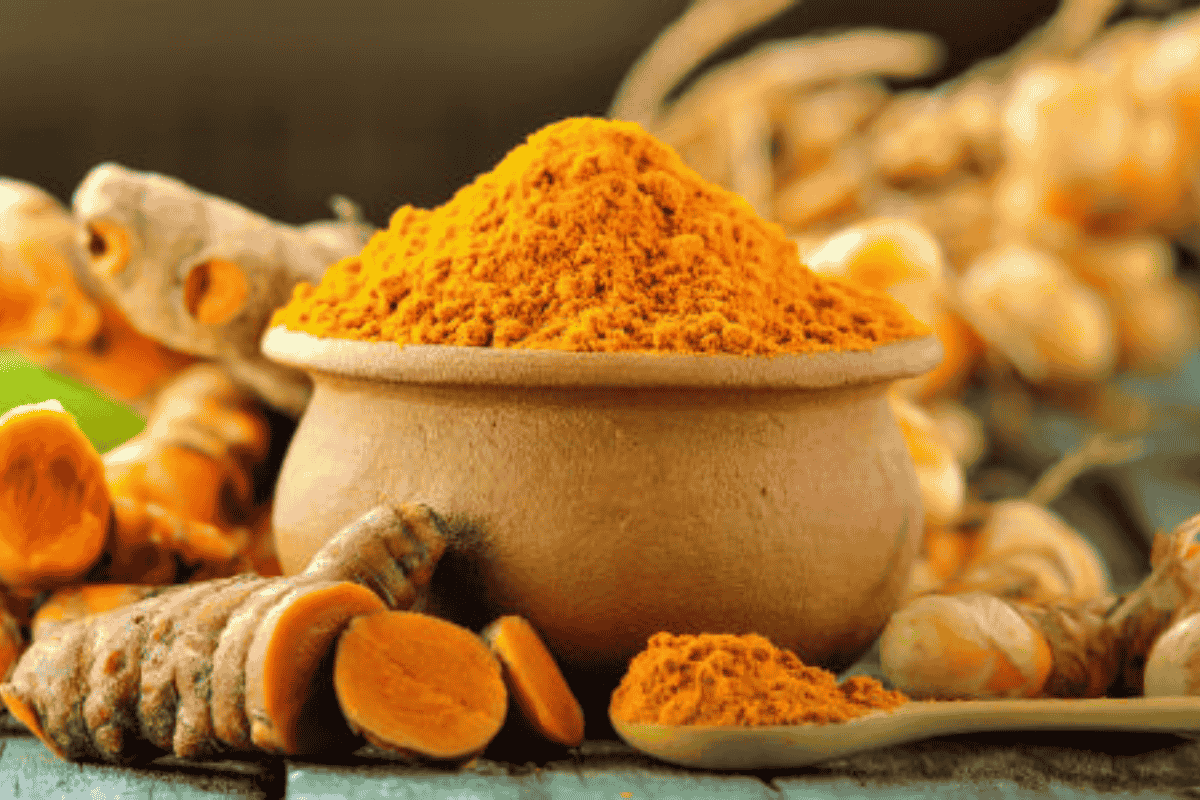Turmeric, the bright yellow spice commonly used in Indian cooking, is much more than a flavour booster. It comes from the root of the Curcuma longa plant, which is closely related to ginger. Its rich colour comes from a compound called curcumin, which also carries powerful health benefits.
Turmeric has been used in Ayurvedic and traditional medicine for centuries, and now, science is beginning to support many of these ancient claims.
Here are 11 scientifically studied ways turmeric may help improve your health.
1. Packed with Protective Compounds
Turmeric gets its vibrant colour from natural plant pigments, which also make it good for your health. The key compound in turmeric is curcumin, which makes up around 3% of the root’s weight.
Curcumin is a curcuminoid and is believed to be the main source of turmeric’s healing power. However, it’s not the only helpful compound—turmeric has many other plant-based chemicals that contribute to its benefits.
2. Strong Antioxidant Properties
Curcumin acts as a powerful antioxidant. Antioxidants fight damage caused by free radicals in the body, which are linked to early ageing and chronic diseases like cancer, diabetes, and heart disease.
By including turmeric in your diet, you may reduce inflammation, boost your body’s defence system, and possibly recover faster from exercise-related muscle pain or stiffness.
3. May Help Relieve Arthritis Symptoms
Studies show that curcumin may help reduce joint pain and swelling. In fact, it works similarly to anti-inflammatory drugs (like NSAIDs), which are often used by arthritis patients. Animal studies have shown good results, but more research is needed to confirm its effects on humans with long-term conditions.
Still, many people with arthritis have reported relief after using turmeric supplements or adding more turmeric to their meals.
4. May Support Brain Health and Memory
Turmeric contains a lesser-known compound called turmerone, which may help brain cells heal and grow. This could be helpful in diseases like Alzheimer’s or after a stroke. Curcumin may also boost brain-derived neurotrophic factor (BDNF)—a hormone linked to learning and memory.
Though most of these studies have been done on animals, the early results are promising for human brain health as well.
5. May Lower the Risk of Heart Disease
Curcumin’s anti-inflammatory and antioxidant properties may protect the heart. Some research shows that it helps improve blood pressure and cholesterol levels—two major risk factors for heart problems.
Including turmeric in your meals may be a heart-smart habit to adopt.
6. Supports a Healthy Immune System
Curcumin acts as an immune modulator, which means it can help balance the immune response. It may improve the activity of important immune cells and reduce harmful inflammatory chemicals known as cytokines.
This means turmeric could help your body fight off infections more effectively, especially when taken in small, regular doses.
7. May Help Prevent Cancer
Curcumin has been found to affect cancer cells in early lab studies. It may stop tumours from forming new blood vessels, slow down the spread of cancer, and even kill cancer cells.
Although research is still in early stages, turmeric shows potential as a supportive treatment in cancer care—especially when combined with a healthy lifestyle and medical care.
8. Can Boost Mood and Mental Wellbeing
Curcumin may help improve mood and relieve symptoms of depression. Some small studies found that it worked just as well as Prozac (a common antidepressant) in reducing feelings of sadness.
This is likely because curcumin boosts serotonin and dopamine—hormones in the brain that make you feel good.
9. May Help Improve Memory
As mentioned earlier, curcumin can raise BDNF levels, which supports the growth and survival of brain cells. This could help with memory, focus, and learning ability, especially in older adults.
More research on humans is needed, but turmeric’s role in brain health is an exciting area to watch.
10. Could Slow Signs of Ageing
Curcumin may help delay age-related issues by protecting cells from damage. It activates proteins that play a role in controlling how quickly our bodies age. This can lead to healthier skin, better energy, and a lower risk of diseases linked to ageing.
11. May Help With Indigestion
Turmeric has long been used in India to ease stomach discomfort. In a recent study, turmeric was compared to omeprazole (a common heartburn medicine), and both were found to be similarly effective in treating digestive issues like gas and bloating.
Though more research is needed, turmeric could be a natural and gentle option for improving digestion.
Turmeric is more than just a colourful spice—it’s a powerful natural remedy with a wide range of health benefits. From fighting inflammation to supporting brain and heart health, curcumin and other compounds in turmeric offer many ways to improve your overall wellbeing.
While turmeric supplements are available, you can also add fresh or powdered turmeric to your meals daily. Just remember, the body doesn’t absorb curcumin easily, so it’s best to pair it with a pinch of black pepper to boost absorption. Talk to your doctor before starting any new supplement, especially if you have a medical condition.









